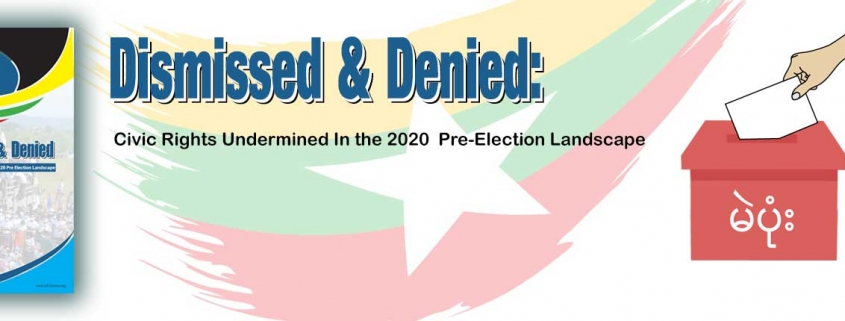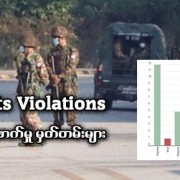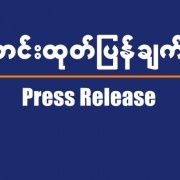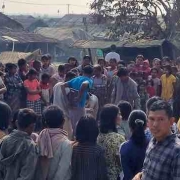Dismissed & Denied: Civic Rights Undermined In the 2020 Pre-Election Landscape
On November 8 2020 nearly 40 million people, including 5 million first time voters, will vote in Myanmar’s 2020 general election. With 1,171 national, state and regional seats to win,1 and over 90 political parties2 vying for them – competition during the campaign period has been fierce. Against the backdrop of the candidates’ commitments are thousands of voters who are living in conflict areas and struggling to recover economically from the global COVID-19 pandemic.
Key stakeholders including the ruling National League for Democracy (NLD) government, the Burma Army, Ethnic Armed Organizations (EAOs), the Union Election Commission (UEC) and international governments and organizations have a responsibility to ensure all citizens have the equal right to vote and equal right to be elected. Article 21 of the Universal Declaration of Human Rights states that ‘everyone has the right to take part in the government of his country, directly or through freely chosen representatives.’3 The failure to uphold basic human rights principles and electoral values in the midst of political campaigning in Burma has resulted in the continued persecution of ethnic people, especially ethnic political parties, and further enabled deeply rooted systemic discrimination.
This briefing paper by the Network for Human Rights Documentation-Burma (ND-Burma) is a research-based analysis of the 2020 pre-election landscape about how rights were abused and manipulated in the midst of COVID-19, and internal armed conflict between the months of August 25 2020 and 25 October 2020. By drawing on the various articles in the International Covenant on Civil and Political Rights (ICCPR)4 and the International Covenant on Economic, Social and Cultural Rights5 (ICESCR), ND-Burma will demonstrate how the failure to uphold democratic values enshrined in both covenants contributes to the lack of legitimacy and integrity of the 2020 election.







